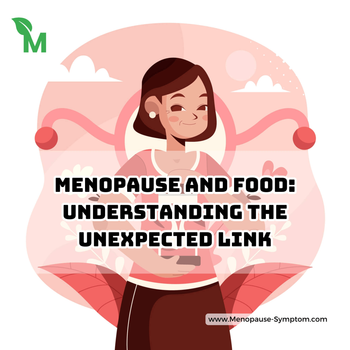This phase is caused by a decline in hormones, causing many changes in the female body, affecting the psychology and creating a lot of stress. Managing menopause symptoms naturally can help improve quality of life, reduce discomfort and improve overall health. Here are some effective methods to reduce stress and improve sleep during menopause.
1. Understand perimenopause and menopause
Before learning how to manage menopause symptoms, it is important to understand the process of perimenopause and menopause. Perimenopause usually begins several years before menopause actually occurs.
Menopause is the permanent cessation of menstruation (amenorrhea) due to loss of ovarian function. This period is due to the end of the menstrual cycle, which causes a decrease in the hormone estrogen, creating a series of unwanted symptoms such as hot flashes, night sweats, disrupted sleep and genitourinary syndrome of menopause (symptoms and signs of estrogen deficiency, such as vaginal atrophy). This can lead to feelings of anxiety, depression and being easily stressed. One of the keys to effectively managing menopausal symptoms is to minimize these negative effects.
2. Practice meditation and yoga
Meditation and yoga are two great methods to help reduce stress during menopause. Studies have shown that meditation can help relax the mind, reduce anxiety and improve mood. Spending time meditating for at least 10 - 15 minutes a day can bring significant results. Yoga not only helps improve physical health but also helps relax the mind, reduce stress and improve sleep. Some simple yoga moves can help reduce menopausal symptoms effectively such as tree pose, sitting forward bend or lying down to relax.
3. Proper nutrition
Nutrition plays an important role in managing menopausal symptoms. A balanced diet rich in fiber, protein, omega-3 and vitamins C, D can help improve mental and physical health. Foods rich in phytoestrogens such as soybeans, flax seeds and beans can help regulate estrogen levels in the body, thereby reducing menopausal symptoms. At the same time, maintaining adequate water intake is also essential to support the body's activities and reduce hot flashes.
4. Exercise regularly
Exercise not only helps improve overall health but is also an effective way to reduce stress and improve sleep. Regular exercise helps the body produce endorphins, happy hormones that help create a feeling of relaxation and reduce anxiety. Aerobic exercises, yoga, walking or swimming are all great options for women during menopause. Try to exercise at least 30 minutes a day to achieve optimal results in reducing menopausal symptoms.
5. Use natural herbs
Some natural herbs have been shown to have positive effects in reducing menopausal symptoms. Nutmeg, jujube, or green tea are all safe and effective options. They not only help balance hormones but also help reduce stress and improve sleep. However, before using any herbs, you should consult your doctor to ensure safety and suitability for your health condition.
6. Establish good sleep habits
Sleep is very important when managing menopause symptoms. Lack of sleep or poor sleep quality can increase feelings of fatigue, stress, and worsen menopause symptoms. Sleep is the time for your body to recover, so getting enough sleep is a priority during this period. The quality of your sleep is also important. To improve your sleep, establish a healthy bedtime routine such as reading, drinking a cup of herbal tea, or taking a warm bath. Stay away from electronic devices at least 30 minutes before bedtime and maintain a regular bedtime every day. This will help your body fall asleep more easily and achieve deeper sleep.
7. Participate in social activities
Participating in social activities is also an effective way to reduce stress during menopause. Socialising with new friends, family and people with similar experiences can create a supportive and encouraging environment. In addition, joining clubs and volunteering activities can help you gain social connections, which can relieve stress and improve your mental health.
8. Stay positive
A positive attitude can have a powerful impact on how you feel about menopause symptoms. Think of the changes that come with menopause as a natural part of life. Instead of worrying or feeling negative about your symptoms, focus on the positives that come with ageing. Try keeping a diary of your feelings, the things that are going on in your life and the achievements you have made. This can boost your confidence and help you overcome difficulties more easily.
9. Seek professional help
Finally, if your menopause symptoms get worse or are seriously affecting your daily life, don’t hesitate to seek help from your doctor or health professional. They will check your health and provide you with more specific strategies and methods to help you manage your menopause symptoms more effectively. Some women may need hormone therapy or complementary therapies to help relieve their menopause symptoms.
Conclusion
Menopause is not an easy process, but it is possible to manage your menopause symptoms naturally. By using methods such as meditation, yoga, proper nutrition, exercise, natural herbs, and maintaining good sleep habits, you can effectively reduce stress and improve your sleep. Remember that every woman will experience menopause differently, so be patient and enjoy the journey you are on.
Source: Team MPS compiled, analyzed and wrote. Please dont reup without source. Many thanks.

Menopause And Food: Understanding The Unexpected Link
Invalid Date

Menopause And Marriage: Are You Struggling?
Invalid Date

Menopause and Mindfulness: Finding Inner Peace
09.02.2024
Menopause is a natural transition in a woman’s life, usually occurring between the ages of 45 and 55. It brings with it many physical and psychological changes that can leave many feeling confused and anxious.
